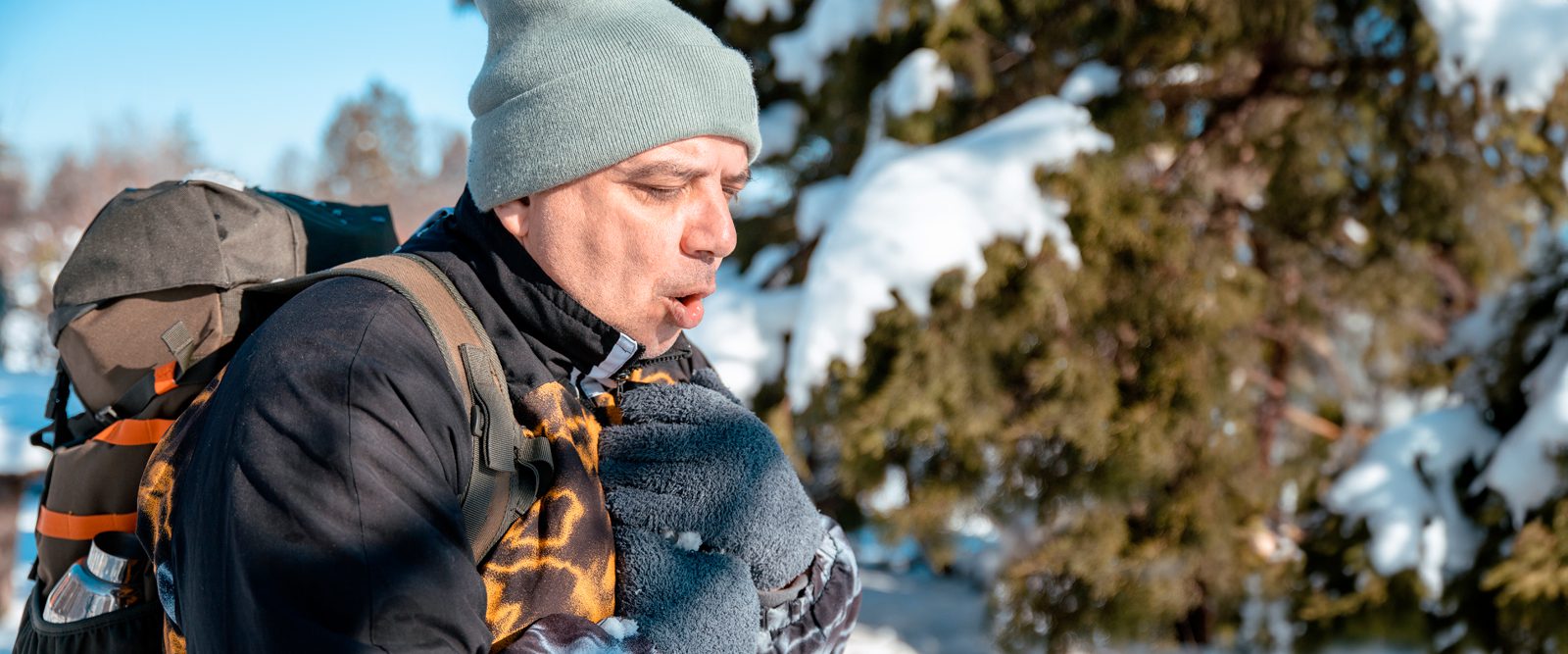How Can Cold Weather Affect Your Heart?
A cardiologist shares tips for protecting your heart health in chilly temperatures.

As temperatures drop and some areas get a blanket of ice and snow, protecting yourself from slips, falls, and chilly weather is key — and so is protecting your heart.
“People tend to think about frostbite or hypothermia, but the number of cardiac events like heart attacks is higher during the winter months, as cold weather can put more stress on the cardiovascular system,” says Dr. Jeremy Berman, a cardiologist at NewYork-Presbyterian Brooklyn Methodist Hospital.
“Even walking through heavy snow can put tremendous strain on the body if someone isn’t used to it.” he says. “Whether or not you have a preexisting condition, it’s important to listen to your body and seek appropriate attention if something doesn’t feel right.”
Dr. Berman, who is also assistant professor of clinical medicine at Weill Cornell Medicine, spoke with Health Matters about how cold weather can affect your heart, symptoms to look out for, and how to protect your heart this winter.
What can happen to your heart when it’s cold outdoors?
Dr. Berman: Imagine walking out of the house and being immediately hit by the cold. Your body will naturally react to preserve your core temperature. Vasoconstriction — the narrowing of the arteries in the arms, the legs, and the periphery of your body — will happen to keep blood flowing to your major organs and protect them, and this can raise your blood pressure.

Dr. Jeremy Berman
Your heart must pump against those narrowed arteries, and that puts more wear and tear and strain on it. You also have a surge in stress hormones, which has an impact. As the body temperature decreases, even by just a couple of degrees, you have an increased risk for blood clotting. All those factors together can contribute to a heart attack or stroke.
Why are heart attacks more common in the winter?
Research shows that more people die from heart attacks during the winter holidays than at any other time of the year. There are several factors that can contribute: the cold weather, stress, and dietary indiscretion around the holidays.
More darkness in the wintertime can also have an impact, with increased cardiovascular risk associated with disturbances in circadian rhythms.
For people who aren’t used to strenuous activity, shoveling snow can be a critical factor leading to a cardiac event — along with reduced blood flow from the cold, the strain of lifting and tossing snow can increase a person’s risk.
What are common symptoms?
Common symptoms of a heart attack or major cardiovascular event can include:
- Sudden, severe chest discomfort or pain
- Discomfort or pain in other areas of the upper body, including the arms, back, neck, jaw, or stomach
- Shortness of breath
- Nausea
- Lightheadedness
Call 911 and seek immediate medical attention. Do not try to drive yourself or take public transportation to a hospital.
Not everyone who goes out in the cold is going to have a cardiac episode, but everyone should be aware and take any new symptoms seriously.
Whether or not you have a preexisting heart condition, listen to your body. And for those with heart conditions, winter is a good time of year to make sure you are up to date on your appointments and care plan.
How can you protect your heart during cold weather?
People may not always want to go outside when it’s cold, but there are ample opportunities to get moving and safely exercise indoors. You can do stretches or yoga, or even visit a larger indoor space such as a mall to get your steps in.
When outdoors, ease yourself into activity. Take small steps, and make sure you’re not in the cold for hours on end. Dress appropriately and wear layers, keeping the head and neck warm to protect your core temperature.
And make sure you speak with your doctor ahead of time about your blood pressure and cholesterol, especially if you have risk factors for cardiovascular disease. Don’t let snow shoveling be your stress test.
We see the transmission of common colds and viruses during the winter months, so getting your flu shot and handwashing are also important.
All of this can help protect your heart in cold weather but should also be top of mind year-round.
Additional Resources
Learn more about comprehensive cardiovascular care at NewYork-Presbyterian.
Find more tips for staying active in cold weather.
